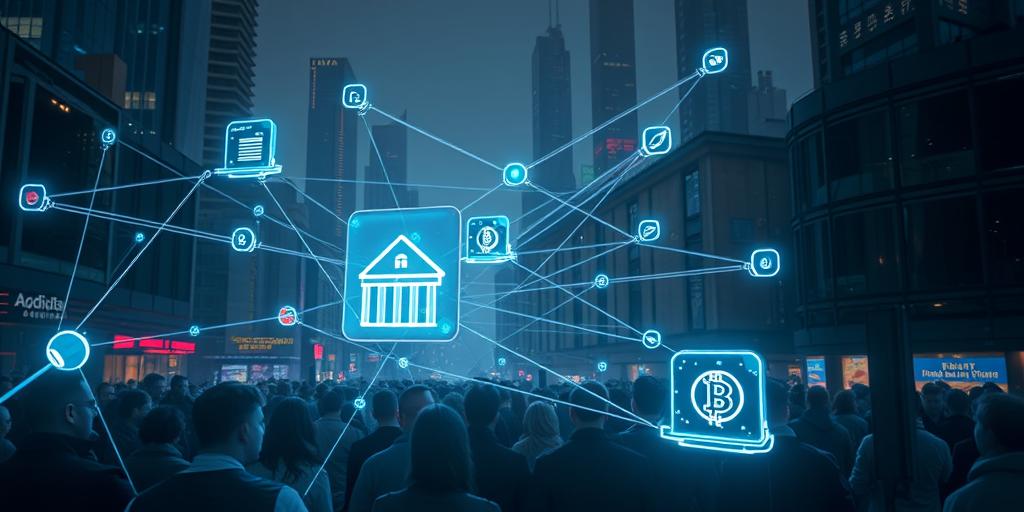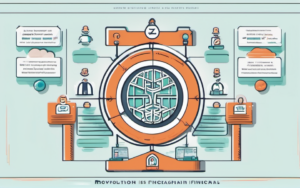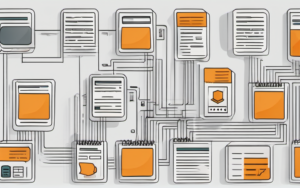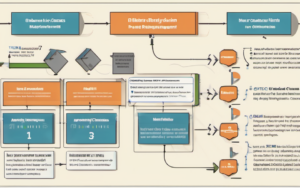The digital age has brought about unprecedented connectivity and access to information, but it has also eroded trust in traditional institutions and systems. With the rise of centralized platforms and the proliferation of data breaches, many people are questioning the integrity and reliability of the information they encounter online. This lack of trust poses a significant challenge to a healthy and functioning society, but blockchain technology offers a potential solution, promising to rebuild trust in a world increasingly defined by uncertainty.
The Erosion of Trust in the Digital Age
The digital age has brought about a significant shift in how we interact with information, businesses, and institutions. While this shift has resulted in numerous benefits, it has also led to a decline in trust in traditional systems.
Centralized Systems and the Risk of Manipulation
Centralized systems, often controlled by a single entity, are susceptible to manipulation and bias. This lack of transparency can lead to a lack of confidence in the information provided by these systems. For example, social media platforms have faced criticism for their algorithms, which can amplify certain narratives and suppress others, potentially influencing public opinion.
Data Breaches and Privacy Concerns
The increasing reliance on digital platforms has made personal data vulnerable to breaches. This vulnerability raises concerns about privacy and security, eroding trust in organizations responsible for protecting sensitive information. Data breaches can have severe consequences, ranging from financial losses to identity theft, further undermining trust in digital systems.
The Rise of Misinformation and Fake News
The ease with which information can be shared online has led to the proliferation of misinformation and fake news. The spread of inaccurate or misleading information can undermine public discourse and create a climate of distrust, making it difficult to discern truth from falsehood.
Blockchain: A Foundation for Trust
Blockchain technology, with its decentralized and transparent nature, offers a potential solution to the trust crisis. It provides a way to build a more secure and reliable foundation for digital interactions.
Decentralization and Transparency
Unlike centralized systems, blockchain is decentralized, meaning that data is distributed across a network of computers rather than being controlled by a single entity. This decentralized nature makes it more resistant to manipulation and censorship, as any changes to the blockchain must be agreed upon by a majority of participants in the network.
Immutability and Security
Blockchain is also immutable, meaning that once data is recorded on the blockchain, it cannot be altered or deleted. This immutability provides a high level of security and transparency, making it difficult for malicious actors to tamper with records or manipulate data.
Verifiable and Auditable Records
Blockchain enables verifiable and auditable records. Every transaction on the blockchain is recorded and time-stamped, creating a permanent and transparent history of all activities. This allows users to verify the authenticity of data and track the provenance of information.
Applications of Blockchain in Restoring Trust
The potential applications of blockchain technology in restoring trust are vast and diverse. Blockchain can be used to create more secure and transparent systems in various industries, ranging from supply chain management to healthcare.
Supply Chain Management
Blockchain can revolutionize supply chain management by providing a secure and transparent way to track products from origin to consumer.
Tracking Products from Origin to Consumer
By recording information about the origin, production, and distribution of products on the blockchain, consumers can gain greater confidence in the provenance of the goods they purchase. This increased transparency can help combat counterfeiting and fraud by allowing consumers to verify the authenticity of products.
Combating Counterfeiting and Fraud
Blockchain can help businesses track products and materials throughout the supply chain, making it more difficult for counterfeiters to infiltrate the market. This can help protect consumers from purchasing fake or substandard products and ensure the integrity of supply chains.
Digital Identity and Authentication
Blockchain can be used to create secure and verifiable digital identities. By storing identity information on the blockchain, individuals can control their own data and share it selectively with trusted parties.
Secure and Verifiable Identity Management
Blockchain enables the creation of secure and verifiable digital identities, making it more difficult for identity thieves to steal or misuse personal information. This can help reduce fraud and improve the security of online transactions.
Reducing Identity Theft and Fraud
Blockchain can help prevent identity theft by providing a secure and tamper-proof method for storing and verifying identity information. This can also help reduce fraud by making it more difficult for criminals to create fake identities.
Healthcare Records
Blockchain can revolutionize the way healthcare records are managed and shared. By storing medical data on the blockchain, patients can control access to their information and share it securely with healthcare providers.
Secure and Private Sharing of Medical Data
Blockchain can enable patients to share their medical records with healthcare providers securely and privately, while maintaining control over their data. This can facilitate better patient care and improve interoperability between healthcare systems.
Improved Patient Data Management
Blockchain can improve patient data management by providing a secure and reliable system for storing and sharing medical records. This can help reduce errors, improve patient safety, and enhance the efficiency of healthcare delivery.
Voting Systems
Blockchain can enhance the security and transparency of voting systems, making it more difficult for fraud or manipulation to occur.
Transparent and Tamper-Proof Voting Processes
By recording votes on the blockchain, election officials can ensure that voting processes are transparent and tamper-proof. This can help restore trust in elections and increase voter participation.
Increased Voter Confidence and Participation
Blockchain-based voting systems can increase voter confidence by ensuring the integrity and security of the voting process. This can also encourage more people to participate in elections, leading to a more representative democracy.
Challenges and Considerations
While blockchain technology offers significant potential for restoring trust, it is not without its challenges.
Scalability and Performance
One challenge is the scalability and performance of blockchain networks. As the number of transactions increases, the processing capacity of the blockchain network may become a bottleneck. This can lead to delays in transaction processing and higher costs.
Regulation and Legal Frameworks
Another challenge is the lack of clear regulatory frameworks for blockchain technology. The decentralized nature of blockchain raises questions about jurisdiction, liability, and data privacy, making it difficult for governments and regulators to establish clear guidelines for its use.
User Adoption and Education
For blockchain to be widely adopted, users need to be educated about its benefits and potential applications. There is a need to increase awareness and understanding of blockchain technology, particularly among the general public.
The Future of Trust in a Blockchain World
The future of trust in a blockchain world is bright. Blockchain technology has the potential to create a more transparent and accountable society, empowering individuals and businesses to interact with each other in a more secure and trustworthy manner.
Blockchain can help build a more secure and trustworthy digital ecosystem, reducing fraud and manipulation while promoting transparency and accountability. By empowering individuals and businesses to control their data and interact in a more secure and reliable manner, blockchain has the potential to restore trust in a world increasingly defined by uncertainty.




